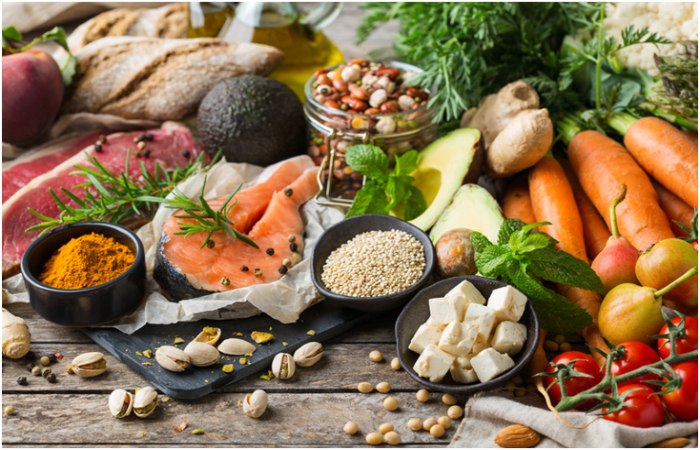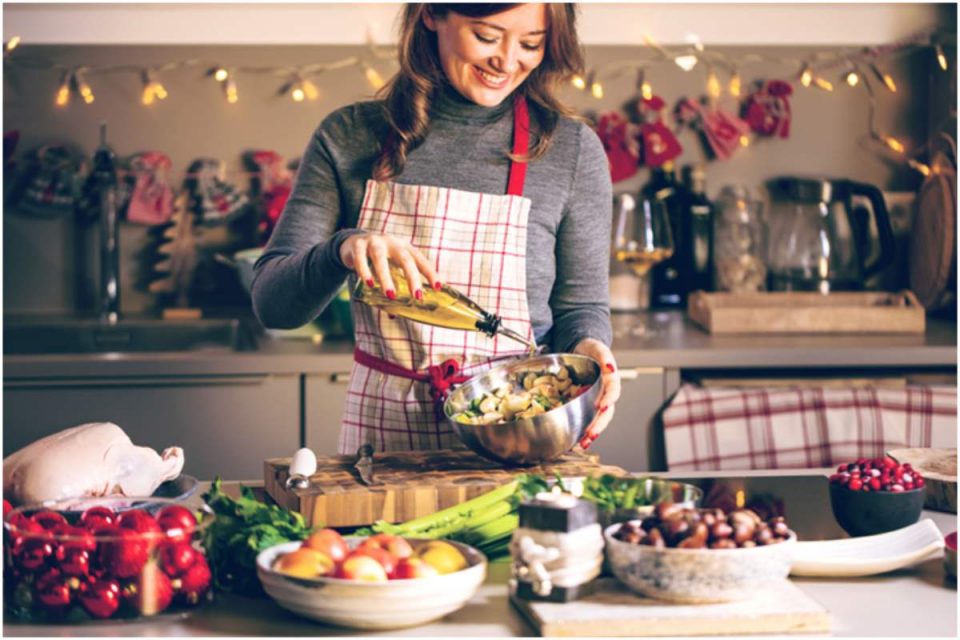The holidays are coming up, and you may want to look your best for all the holiday parties, but what about your health? Don’t let the holidays be a license to go hog wild with food choices that you’ll regret later. The good news is you can stay healthy during this time of year and ensure you maintain healthy eating habits throughout and past the holiday season.
This is typically the time of year where you might not feel you’re able to stick with your low-FODMAP meal plan or stay away from those sugary, high-calorie foods that don’t appeal the same way other times of the year.
Unhealthy Eating During the Holidays
It can be challenging to maintain a healthy lifestyle during the holiday season because of all the social gatherings, home-cooked meals from family and friends, and big feasts. People end up taking in more calories than they usually do, leading to weight gain and digestive issues. Most don’t plan ahead for this spike in calories, which is why their healthy eating habits fall to the wayside.
It can also be tough for folks who suffer from various digestive and gastrointestinal issues like bloating, constipation, diarrhea, GERD (acid reflux), irritable bowel syndrome (IBS), and others. These issues are often triggered by certain foods added to holiday meals or eaten in larger quantities than usual. Learning which foods cause these problems can help you minimize discomfort at this time of year.
The severity of your symptoms will determine what kinds of changes you should make to your daily eating habits over the holidays. For lighter cases, you’ll only need to start paying more attention to things like how certain foods change the frequency or intensity of your symptoms. Still, you may need to go out and talk with a doctor or qualified dietitian to get things under control for severe cases.
The Healthy Eating Habits You Need to Start ASAP
Allow Yourself Some Leeway: Many people’s biggest mistake in holiday eating, or healthy eating in general, is being too strict with themselves. Unfortunately, this generally lasts a few days before the unsustainability of it all hits home, and then everything falls apart.
Instead, give yourself some leeway. For the next few weeks, allow yourself to eat a little more than you usually do. Of course, you can’t be too strict about it all because there will inevitably be a few days where you don’t meet your healthy eating goals. But suppose your usual daily calories are 1600, and you go up to 1800 for a week. In that case, chances are you’ll be able to handle that without negative consequences.
Minimize Your Alcohol Intake: Alcohol isn’t necessarily bad news, but the holidays are what they are because of all the partying. It can also be challenging to maintain a healthy eating routine when enjoying yourself at these parties. This is why it’s essential to minimize your alcohol intake during the holidays. If you do go out, just have a few drinks, and don’t be too hard on yourself if you overindulge every now and then.
Eat Light Meals: In general, eating light meals will help minimize bloating and discomfort from stomach fullness. It also ensures that there’s little pressure on your digestive system so you can feel your best. In general, aim to eat smaller meals more frequently than a few large ones throughout the day. This is also good for the holidays when schedules might be a little more hectic and you don’t always have the time for proper meals.
Stick to a Healthy Meal Plan: Having a healthy meal plan that sets out what foods you can and can’t eat is an excellent way to curb excessive eating or indulging in the unhealthy foods that will surround you come the holidays. One great example of this is the Mediterranean diet meal plan that has people eating lots of healthy fats, vegetables, fruits, and whole grains – all the while adhering to two to three meals a day with snacks in between. It’s a recipe for success!

Minimize Processed Foods: The holidays are notorious for processed food, candy, alcohol, cakes, bread, and other baked goods made with refined sugars. These foods are generally unhealthy in large amounts for your digestive system because they can cause spikes in blood sugar which leads to inflammation, an increase in acid, fluctuations in appetite hormones, and other problems.
The best thing you can do over the holidays is limit these foods as much as possible. Don’t be too hard on yourself if you have a few pieces of candy every so often, but keep it to just that rather than multiple pieces at once throughout the day. It’s also good to avoid foods like bread and dinner rolls because they generally contain gluten, which can worsen your symptoms.
Schedule Your Bigger Meals: If there’s one meal during the holidays that you’re going to splurge a little more on, schedule it for a time where you know you won’t be doing anything afterward. This way, if you feel nausea or discomfort from that meal, it won’t be as bad because you’ll have the rest of the day to recover.
Drink Plenty of Water: It’s also good to stay hydrated over the holidays, especially when you’re drinking more alcohol than usual. Drinking plenty of water will prevent bloating and is generally just better for your digestive system in general.

Pay Attention to How You Feel: This is a good habit to have year-round, but it’s crucial when everyone around you is overeating during the holidays. Just because your coworker ate four slices of pie doesn’t mean you have to follow suit. Take note of how certain foods make you feel so that you don’t do anything you’ll regret, especially if they’re not ones you’d typically eat.
Fail to Plan, Plan to Fail
If you’re walking into the holiday season without a plan for healthy eating habits, you’re setting yourself up for failure. Those weeks of “eating whatever” will inevitably catch up with you, and it might be even more difficult than usual to get back on track.
Preparing your own meals is an easy way to avoid these problems because at least you know what’s in there. We all know the grocery stores are packed around this time of year. However, it’s not always easy to get in and out with everything you need, so you may need alternatives, and calling for takeout isn’t what we’d recommend.
A better option is to find a meal delivery service such as a Mediterranean diet meal delivery service or those catering to vegan eating. They’ll deliver healthy, pre-made meals right to your door. Meal delivery services are becoming more popular because they make life easier by planning everything for you. Then, all you have to do is heat it up. And this will come in especially handy during the holidays when your time is eaten up by other things.
Whatever you choose to do, set yourself up with a solid plan and you’ll be sure to succeed!

